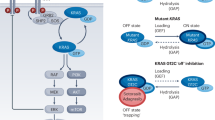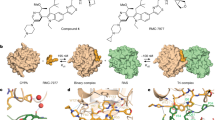Abstract
The Hippo pathway is involved in colorectal cancer (CRC) development and progression. The Hippo regulator Rassf1a is also involved in the Ras signaling cascade. In this work, we tested single nucleotide polymorphisms within Hippo components and their association with outcome in CRC patients treated with cetuximab. Two cohorts treated with cetuximab plus chemotherapy were evaluated (198 RAS wild-type (WT) patients treated with first-line FOLFIRI plus Cetuximab within the FIRE-3 trial and 67 Ras WT patients treated either with first-line mFOLFOX6 or SOX plus Cetuximab). In these two populations, Rassf1a rs2236947 was associated with overall survival (OS), as patients with a CC genotype had significantly longer OS compared with those with CA or AA genotypes. This association was stronger in patients with left-side CRC (hazard ratio (HR): 1.79 (1.01–3.14); P=0.044 and HR: 2.83 (1.14–7.03); P=0.025, for Fire 3 and JACCRO cohorts, respectively). Rassf1a rs2236947 is a promising biomarker for patients treated with cetuximab plus chemotherapy.
This is a preview of subscription content, access via your institution
Access options
Subscribe to this journal
Receive 6 print issues and online access
$259.00 per year
only $43.17 per issue
Buy this article
- Purchase on Springer Link
- Instant access to full article PDF
Prices may be subject to local taxes which are calculated during checkout


Similar content being viewed by others
References
Harvey KF, Zhang X, Thomas DM . The Hippo pathway and human cancer. Nat Rev Cancer 2013; 13: 246–257.
Sebio A, Lenz HJ . Molecular pathways: hippo signaling, a critical tumor suppressor. Clin Cancer Res: Off J Am Assoc Cancer Res 2015; 21: 5002–5007.
Bernascone I, Martin-Belmonte F . Crossroads of Wnt and Hippo in epithelial tissues. Trends Cell Biol 2013; 23: 380–389.
Matallanas D, Romano D, Yee K, Meissl K, Kucerova L, Piazzolla D et al. RASSF1A elicits apoptosis through an MST2 pathway directing proapoptotic transcription by the p73 tumor suppressor protein. Mol Cell 2007; 27: 962–975.
Fernandes MS, Carneiro F, Oliveira C, Seruca R . Colorectal cancer and RASSF family—a special emphasis on RASSF1A. Int J Cancer J Int Cancer 2013; 132: 251–258.
van Engeland M, Roemen GM, Brink M, Pachen MM, Weijenberg MP, de Bruine AP et al. K-ras mutations and RASSF1A promoter methylation in colorectal cancer. Oncogene 2002; 21: 3792–3795.
Miranda E, Destro A, Malesci A, Balladore E, Bianchi P, Baryshnikova E et al. Genetic and epigenetic changes in primary metastatic and nonmetastatic colorectal cancer. Br J Cancer 2006; 95: 1101–1107.
Ahn EY, Kim JS, Kim GJ, Park YN . RASSF1A-mediated regulation of AREG via the Hippo pathway in hepatocellular carcinoma. Mol Cancer Res: MCR 2013; 11: 748–758.
Cordenonsi M, Zanconato F, Azzolin L, Forcato M, Rosato A, Frasson C et al. The Hippo transducer TAZ confers cancer stem cell-related traits on breast cancer cells. Cell 2011; 147: 759–772.
Bartucci M, Dattilo R, Moriconi C, Pagliuca A, Mottolese M, Federici G et al. TAZ is required for metastatic activity and chemoresistance of breast cancer stem cells. Oncogene 2015; 34: 681–690.
Touil Y, Igoudjil W, Corvaisier M, Dessein AF, Vandomme J, Monte D et al. Colon cancer cells escape 5FU chemotherapy-induced cell death by entering stemness and quiescence associated with the c-Yes/YAP axis. Clin Cancer Res: Off J Am Assoc Cancer Res 2014; 20: 837–846.
Sebio A, Matsusaka S, Zhang W, Yang D, Ning Y, Stremitzer S et al. Germline polymorphisms in genes involved in the Hippo pathway as recurrence biomarkers in stages II/III colon cancer. Pharmacogenom J 2015; 16: 312–319.
Heinemann V, von Weikersthal LF, Decker T, Kiani A, Vehling-Kaiser U, Al-Batran SE et al. FOLFIRI plus cetuximab versus FOLFIRI plus bevacizumab as first-line treatment for patients with metastatic colorectal cancer (FIRE-3): a randomised, open-label, phase 3 trial. Lancet Oncol 2014; 15: 1065–1075.
Douillard JY, Oliner KS, Siena S, Tabernero J, Burkes R, Barugel M et al. Panitumumab-FOLFOX4 treatment and RAS mutations in colorectal cancer. NEngl J Med 2013; 369: 1023–1034.
Lenz H, Niedzwiecki D, Innocenti F, Blanke C, Mahony MR, O'Neil BH et al. CALGB/SWOG 80405: Phase III trial of irinotecan/5-Fu/Leucovorin(FOLFIRI) or Oxaliplatin/5-Fu/Leucovorin (mFOLFOX6) with Bevacizumab (BV) or Cetuximab (CET) for patients (pts) with expanded Ras analyses untreated metastatic adenocarcinoma of the colun or rectum (mCRC). Ann Oncol 2014; 25: (Suppl 4); doi: 10.1093/annonc/mdu438.13.
Stintzing S, Jung A, Rossius L, Modest DP, Fischer von Weikersthal L, Deck T et al. Analysis of KRAS/NRAS and BRAF mutations in FIRE-3: A randomized phase III study of FOLFIRI plus cetuximab or bevacizumab as first-line treatment for wild-type (WT) KRAS (exon 2) metastatic colorectal cancer (mCRC) patients. Eur J Cancer 2013; 49: abstract 17.
Tsuji A, Sunakawa Y, Denda T, TAkinishi Y, Kotak M, Tanioka H et al. JACCRO CC-06. A Phase I/II study of cetuximab (cet) in combination with S-1 and oxaliplatin (SOX) in first-line treatment for metastatic colorectal cancer(mCRC). J Clin Oncol 2014; 32, abstr 571.
Tsuji A, Nakamura M, Sunakawa Yu, Kochi M, Denda T, Yamaguchi T et al. JACCRO CC-05. A phase II study of cetuximab and mFOLFOX6 in mCRC including prospective early tumor shrinkage analysis. Ann Oncol 2013; 24: iv 38–iv121.
McShane LM, Altman DG, Sauerbrei W, Taube SE, Gion M, Clark GM et al. REporting recommendations for tumour MARKer prognostic studies (REMARK). Eur J Cancer 2005; 41: 1690–1696.
Hecht JR, Douillard JY, Schwartzberg L, Grothey A, Kopetz S, Rong A et al. Extended RAS analysis for anti-epidermal growth factor therapy in patients with metastatic colorectal cancer. Cancer Treat Rev 2015; 41: 653–659.
Wang L, Shi S, Guo Z, Zhang X, Han S, Yang A et al. Overexpression of YAP and TAZ is an independent predictor of prognosis in colorectal cancer and related to the proliferation and metastasis of colon cancer cells. PLOS One 2013; 8: e65539.
Yuen HF, McCrudden CM, Huang YH, Tham JM, Zhang X, Zeng Q et al. TAZ expression as a prognostic indicator in colorectal cancer. PLOS One 2013; 8: e54211.
Touil Y, Igoudjil W, Corvaisier M, Dessein AF, Vandomme J, Monte D et al. Colon cancer cells escape 5FU chemotherapy-induced cell death by entering stemness and quiescence associated with the c-Yes/YAP axis. Clin Cancer Res: Off J Am Assoc Cancer Res 2013; 20: 837–846.
Song S, Honjo S, Jin J, Chang SS, Scott AW, Chen Q et al. The hippo coactivator YAP1 mediates EGFR overexpression and confers chemoresistance in esophageal cancer. Clin Cancer Res: Off J Am Assoc Cancer Res 2015; 21: 2580–2590.
Lee KW, Lee SS, Kim SB, Sohn BH, Lee HS, Jang HJ et al. Significant association of oncogene YAP1 with poor prognosis and cetuximab resistance in colorectal cancer patients. Clin Cancer Res: Off J Am Assoc Cancer Res 2015; 21: 357–364.
Bauer KM, Hummon AB, Buechler S . Right-side and left-side colon cancer follow different pathways to relapse. Mol Carcinog 2012; 51: 411–421.
Lee GH, Malietzis G, Askari A, Bernardo D, Al-Hassi HO, Clark SK . Is right-sided colon cancer different to left-sided colorectal cancer – a systematic review. Eur J Surg Oncol 2015; 41: 300–308.
Maus MK, Hanna DL, Stephens CL, Astrow SH, Yang D, Grimminger PP et al. Distinct gene expression profiles of proximal and distal colorectal cancer: implications for cytotoxic and targeted therapy. Pharmacogenom J 2015; 15: 354–362.
Brule SY, Jonker DJ, Karapetis CS, O'Callaghan CJ, Moore MJ, Wong R et al. Location of colon cancer (right-sided versus left-sided) as a prognostic factor and a predictor of benefit from cetuximab in NCIC CO.17. Eur J Cancer 2015; 51: 1405–1414.
von Einem JC, Heinemann V, von Weikersthal LF, Vehling-Kaiser U, Stauch M, Hass HG et al. Left-sided primary tumors are associated with favorable prognosis in patients with KRAS codon 12/13 wild-type metastatic colorectal cancer treated with cetuximab plus chemotherapy: an analysis of the AIO KRK-0104 trial. J Cancer Res Clin Oncol 2014; 140: 1607–1614.
The ENCODE project consortium. An integrated encyclopedia of DNA elements in the human genome. Nature 2012; 489: 57–74.
Acknowledgements
Ana Sebio is a recipient of a Juan Rodés contract from the Instituto de Salud Carlos III (JR14/00006). Martin D. Berger received a grant from the Swiss Cancer League (BIL KLS-3334-02-2014) and the Werner and Hedy Berger-Janser Foundation for cancer research. This work was supported in part by an award from the National Cancer Institute (P30CA014089), the Wunderglo Project and the Daniel Butler Research Fund. The content is solely the responsibility of the authors and does not necessarily represent the official views of the National Cancer Institute or the National Institutes of Health.
Author information
Authors and Affiliations
Corresponding author
Ethics declarations
Competing interests
The authors declare no conflict of interest.
Additional information
Supplementary Information accompanies the paper on the The Pharmacogenomics Journal website
Supplementary information
PowerPoint slides
Rights and permissions
About this article
Cite this article
Sebio, A., Stintzing, S., Heinemann, V. et al. A genetic variant in Rassf1a predicts outcome in mCRC patients treated with cetuximab plus chemotherapy: results from FIRE-3 and JACCRO 05 and 06 trials. Pharmacogenomics J 18, 43–48 (2018). https://doi.org/10.1038/tpj.2016.69
Received:
Revised:
Accepted:
Published:
Issue Date:
DOI: https://doi.org/10.1038/tpj.2016.69



